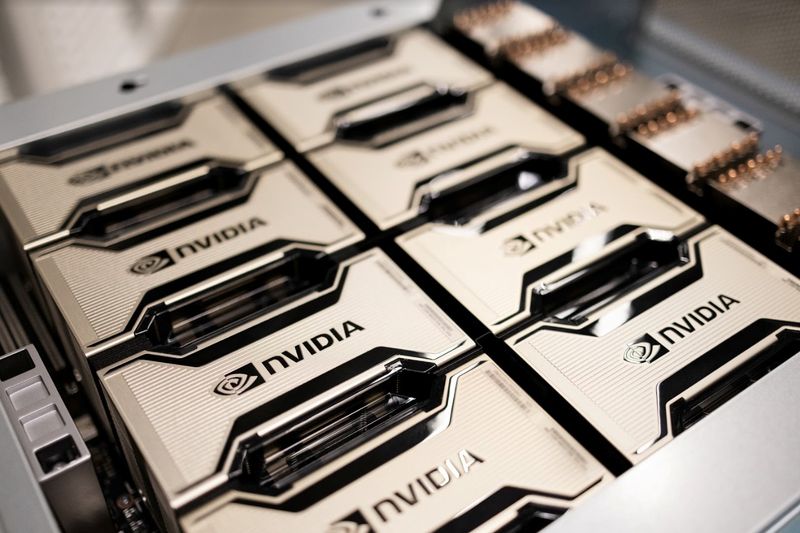Nvidia (NASDAQ:NVDA) CEO Jensen Huang and Meta Platforms (NASDAQ:META) CEO Mark Zuckerberg engaged on Monday in a fireside chat at SIGGRAPH 2024, the annual industry conference for computer graphics enthusiasts and professionals.
Among other things, their discussion focused on the future of generative AI and the role of open source in aiding AI developers and creators.
Wells Fargo analysts highlighted several takeaways from the chat, including the expectation that no single large AI model will fit all needs. Instead, Jensen’s and Zuckerberg’s discussion noted there will be a diverse range of individualized generative AI (GenAI) models.
These will range from those used by individual content creators, like Meta's AI Studio, to models integrated within specific business verticals. Moreover, multi-modal models using individualized or domain-specific data are poised to become prevalent.
Another significant point was the next wave of multi-modal GenAI. Analysts highlighted Meta's Segment Anything Model (SAM), now in its second version, as an example. This model combines video understanding with language models, potentially having broad applications. Currently, AI models are being trained on videos for various uses, including robotics, digital visualizations, and physical world simulations through platforms like Omniverse.
"We continue to think the evolution/deployment of increasingly sophisticated multi-modal GenAI models could be considered the next wave of GenAI,” analysts commented.
The importance of open source was another focal point of the chat, Wells Fargo pointed out.
Zuckerberg mentioned that Apple (NASDAQ:AAPL) has clearly dominated the mobile generation with its closed ecosystem. However, looking ahead, he expressed hope that next-generation compute ecosystems will emphasize openness, particularly in software development.
He discussed the significance of Llama and AR/VR for mixed reality, advocating for an open OS to accommodate various devices. Analysts found this noteworthy, particularly when considering the perception of Nvidia's more closed ecosystem.
Looking ahead, Nvidia anticipates a future where AI applications increasingly focus on non-dialog use cases, including agents that can interact with others, extend scenarios, and perform decision tree analytics. Meanwhile, Meta foresees a shift in social media from content suggested by recommendation engines to content generated in real-time.
“The proliferation of agents as the next step in AI evolution is consistent with our own channel checks,” analysts said. “We note that quality agents pose additional requirements to the system and are expected to increase the inferencing workloads by 10x-100x.”
When asked about whether there is enough energy to power AI, Huang said “Yes.”
He points out that transitioning from CPUs to GPUs for AI workloads will save power in the long run. He also notes that 40% of computing occurs in data centers, with 60% from data movement. Generative AI will reduce internet energy consumption by generating information locally. Moreover, AI data centers can be built in cost-effective locations, not just near power grids.
Regarding new consumer devices, Meta views Smart Glasses (AR/VR/mixed reality) as a potential successor to smartphones, heralding a new era of consumer computing platforms. However, they acknowledge the significant challenges related to the size and weight requirements of the form factor.
